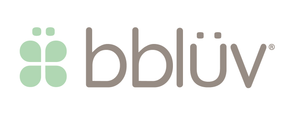
Can I bring my baby swimming? || Baignade avec bébé : oui ou non ?
Summertime is at our doors and you are wondering if you can take a swim in the lake by the cottage with your new little baby? Here are some recommendations on the subject.
While there is no consensus among health professionals on the issue, there are nonetheless some basic elements that you should know. Babies under one year old are more fragile on certain aspects in relation to the immaturity of their systems, such as:
- Maintaining their body temperature, which makes them more sensitive to sudden changes in temperature,
- At the immune level, their protection against contaminants in the environment is developing, which makes them more susceptible to infections.
In regard to these findings, it is logical to be careful about the microorganisms present in lakes and ponds when swimming with a young child. In addition, the presence of green algae, bacteria, fungi and other pollutants is increasingly being detected, especially during hot weather, which can be harmful not only to babies, but anyone exposed.
Babies can be infected in many ways: by swallowing water, by skin contact or by breathing irritating fumes from a body of water. Gastroenteritis, dermatitis, swimmer's ear infections, allergic reactions or even respiratory infections can follow. For all these reasons, swimming in natural bodies of water is therefore not recommended for an infant (up to one year).
What about the swimming pool at home? With full control over the hygiene of the premises, analytical tests and added products, a 1-month-old baby could bathe with you in the water, provided it is warm enough.
Regarding public swimming pools, it is not suggested to go with a baby younger than a 6-month-old, only because it is impossible for you to check if the level of the antibacterial agents in the water is well controlled and if the chlorine or the salt is found in good quantity to counter the contamination of the water in regard with its very large number of users.
On a final side note, do not forget to avoid the peak sun hours (between 11 am and 3 pm), crowds as well as other forms of protection such as a proper hat, sunglasses, sunscreen, an appropriate swimming jacket according to the age your baby, etc.
There you have it! You are now well-informed on the matter and ready for the summer with the family. Enjoy the good time spent together!
See you soon,
Marie Fortier, the baby expert

||
L’été s’en vient et vous vous demandez si vous pourrez vous baigner dans le lac au chalet avec votre nouveau petit bébé ? Eh bien, voici quelques recommandations sur le sujet.
Il faut savoir qu’il n’y a pas de consensus au niveau des professionnels de la santé sur la question, mais il y a néanmoins des bases d’éléments à respecter. Nous savons que les bébés de moins d’un an sont plus fragiles sur certains points reliés à l’immaturité de leurs systèmes, comme par exemple :
- Le maintien d’une température corporelle, ce qui les rend plus sensibles aux changements brusques de température ;
- Au niveau immunitaire, leur protection contre les contaminants dans l’environnement est en développement ce qui les rend plus fragiles aux infections.
En lien avec ces constats, il est bien logique de craindre les micro-organismes présents dans les lacs et étangs lors d’une baignade avec un jeune enfant. De plus, on décèle de plus en plus la présence d’algues vertes, de bactéries, champignons et autres polluants surtout en période de chaleur, ce qui peut nuire non seulement aux bébés mais aussi à toute personne exposée.
Les bébés peuvent être contaminés en avalant de l’eau, par simple contact cutané ou encore en respirant les émanations irritantes provenant d’un plan d’eau. Peuvent s’en suivre gastro-entérite, dermatite, otites du baigneur, réactions allergiques ou encore infections respiratoires. Pour toutes ces raisons, la baignade dans les plans d’eau naturels n’est donc pas recommandée pour un nourrisson (jusqu’à un an).
Qu’en est-il de l’utilisation d’une piscine à la maison ? En ayant le plein contrôle sur l’hygiène des lieux, les tests d’analyse et les produits ajoutés, un bébé d’un mois pourrait se baigner avec vous dans l’eau, à condition qu’elle soit suffisamment chaude pour lui bien entendu.
En ce qui concerne les piscines publiques, on suggère le plus souvent d’attendre au moins 6 mois, car il vous est impossible de vérifier si l’eau est bien contrôlée au niveau des agents antibactériens et que le chlore ou le sel se retrouve en bonne quantité pour contrer la contamination de l’eau en lien avec le très grand nombre d’utilisateurs.
Enfin, n’oubliez pas d’éviter les heures de grand soleil (entre 11h et 15h), les foules et de le protéger du soleil avec un chapeau, des lunettes, de la crème solaire, une veste de natation appropriée selon l’âge de votre bébé, etc.
Voilà ! Vous êtes maintenant informés sur la question et prêts pour l’été en famille. On se dit à très bientôt.
Profitez du bon temps passé ensemble !
Marie Fortier, la spécialiste des bébés

